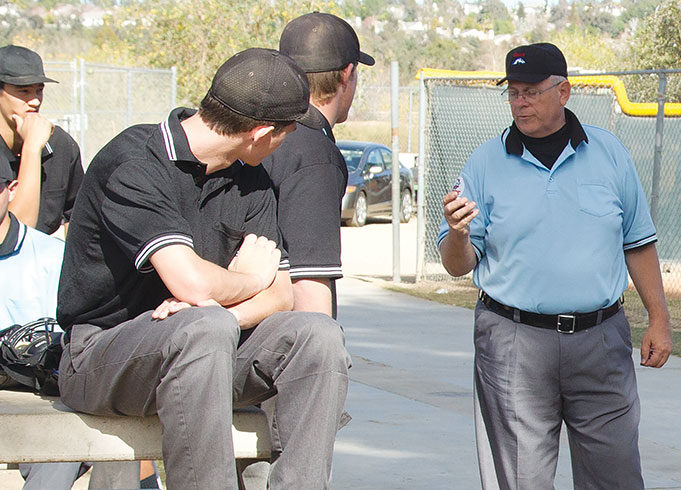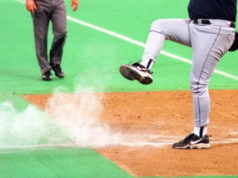You’re a young, aspiring official who is eager to seek knowledge anywhere you can about the rules, mechanics and philosophies applicable in your sport. You’re hoping to move up the ladder or just to get better. But you don’t feel you’re getting what you need from the training program in your group or association. What do you do?
This is not a problem at the major college or pro levels because the training is extensive and goes on year round. Officials spend a great deal of time, in clinics and otherwise, digging into the books and dissecting videos. That individual study complements the training afforded by a national coordinator or league supervisor. If you’re not getting what you need, it’s because you’re not taking full advantage of what exists. Or maybe, it’s a case of not putting forth the required effort.
In lower levels, however, there can be wide variations in the caliber of training provided. For one thing, states are different. In Texas, for example, the Texas Association of Sports Officials affords extensive training. The larger cities also have chapters that conduct training programs.
But not every state and sport is the same, so in many instances, officials may find themselves pretty much on their own. What then? It boils down to how proactive one wants to be.
I believe much of what is done at the collegiate level is readily transferable to lower levels. What is pass interference or a block/charge in Maine should be the same in Utah. Why should a high school baseball umpire not use the same stance that major leaguers use? Why should the strike zone in NCAA not be the same as it is in high school? NFHS rules may call for tweaking here and there, but not too much.
Access the plethora of information available to college officials
That leads me to believe that an aspiring official at any level would do well to figure out a way to access the plethora of information that is available to college officials. Yes, it may be necessary to change things a bit if your national, state or local authority has some unique twists that make what is done at the college level unworkable at other levels. But my experience is that although the rules and mechanics may be different at different levels, situations can and should be handled essentially the same way at all levels, so that training videos can be of immense help.
Something else whose importance should not be minimized is the value of a good mentor. There may not be formal mentorship in your group, but there will be solid, proven veterans, many of whom would be anxious to take a neophyte under their wing. If you’re new to officiating, and maybe even if you’re not, ask around to see who might qualify. Then approach that person and ask if he or she is willing to take you on as a project. A few won’t be, but most will; they’ll be flattered to be asked.
When I started officiating football in 1970, I did not have a mentor per se. But I quickly figured out how to become part of a group of eight to 10 veterans who got together at the same watering hole after chapter meetings. While a lot of the conversation was typical war-story talk, there was also a lot of common-sense back-and-forth that helped me learn how to navigate a football field better than anything I could have gotten out of a book. I used a lot of the techniques I learned back then for the rest of my career.
The bottom line is that I don’t think it matters where you are or what sport or what level you work. There is a wealth of information out there that will help you if you’re willing to figure out how to access it. Referee.com and NASO have plenty of resources. There are also many website discussion boards, some of which involve an exchange of useful knowledge (others are just forums for BS). Or try Googling. Some of what you learn may be at odds with what the powers-that-be in your group or sport have decreed, and in that case you have no choice but to do what you’re told to do. But a great deal of what you access can be used as-is.
Jon Bible is a replay official in the Southeastern Conference. A resident of Austin, Texas, he formerly officiated collegiate and pro football.
What's Your Call? Leave a Comment:
Note: This article is archival in nature. Rules, interpretations, mechanics, philosophies and other information may or may not be correct for the current year.
This article is the copyright of ©Referee Enterprises, Inc., and may not be republished in whole or in part online, in print or in any capacity without expressed written permission from Referee. The article is made available for educational use by individuals.


















